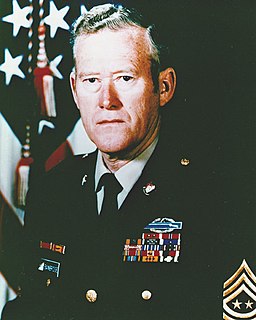A Quote by African Spir
Only a moral education based on free inner discipline can bring to bear a salutary action and lead to a true morality.
Related Quotes
By "moral discipline," I mean self-discipline based on moral standards. Moral discipline is the consistent exercise of agency to choose the right because it is right, even when it is hard. It rejects the self-absorbed life in favor of developing character worthy of respect and true greatness through Christlike service.
The most important human endeavor is the striving for morality in our actions. Our inner balance and even our very existence depend on it. Only morality in our actions can give beauty and dignity to life. To make this a living force and bring it to clear consciousness is perhaps the foremost task of education. The foundation of morality should not be made dependent on myth nor tied to any authority lest doubt about the myth or about the legitimacy of the authority imperil the foundation of sound judgment and action.
The core of a soldier is moral discipline. It is intertwined with the discipline of physical and mental achievement. It motivates doing on your own what is right without prodding. It is an inner critic that refuses to tolerate less than your best. Total discipline overcomes adversity and physical stamina draws on an inner strength that says "drive on".
When, in any ethical department, unity is attained between outer demands and inner desires, between nature and conscience, between the needs of society and the individual, the moral formula is void because inner necessity then makes it psychically and physically impossible to break the outer law. Thus, true morality is attained.
My version of relativism is pluralistic and attributes functions to morality that in combination with human nature place limits on what could count as a true morality. Unlike many other relativists, I do not hold that people are subject to a morality because they all belong to a certain group. That is, I don't hold that being a member of a group makes one's subject to some set of generally accepted norms. What is true is that others around us teach us morality and moral language, so they inevitably influence us.
A narrow and moralistic view of morals is responsible for the failure to recognize that all the aims and values which are desirable in education are themselves moral. Discipline, natural development, culture, social efficiency, are moral traits - marks of a person who is a worthy member of that society which it is the business of education to further.
There ought not be two histories, one of political and moral action and one of political and moral theorizing, because there were not two pasts, one populated only by actions, the other only by theories. Every action is the bearer and expression of more or less theory-laden beliefs and concepts; every piece of theorizing and every expression of belief is a politcal and moral action.
My chief aim was to combat the view that there can be no true morality without supernatural sanctions. So I argued at length that the social, or altruistic, impulses are the real source of morality, and that an ethic based on these impulses has far more claim on our allegiance than an ethic based on obedience to the commands of a God who created tapeworms and cancer-cells.
Desire is action. In the inner world, your desires bring about their own fulfillment, effortlessly. That inner world, and the exterior one, intersect and interweave. They only appear separate. In the physical world, time may have to elapse, or whatever. Conditions may have to change, or whatever, but the desire will bring about the proper results. The feeling of effortlessness is what is important.









































